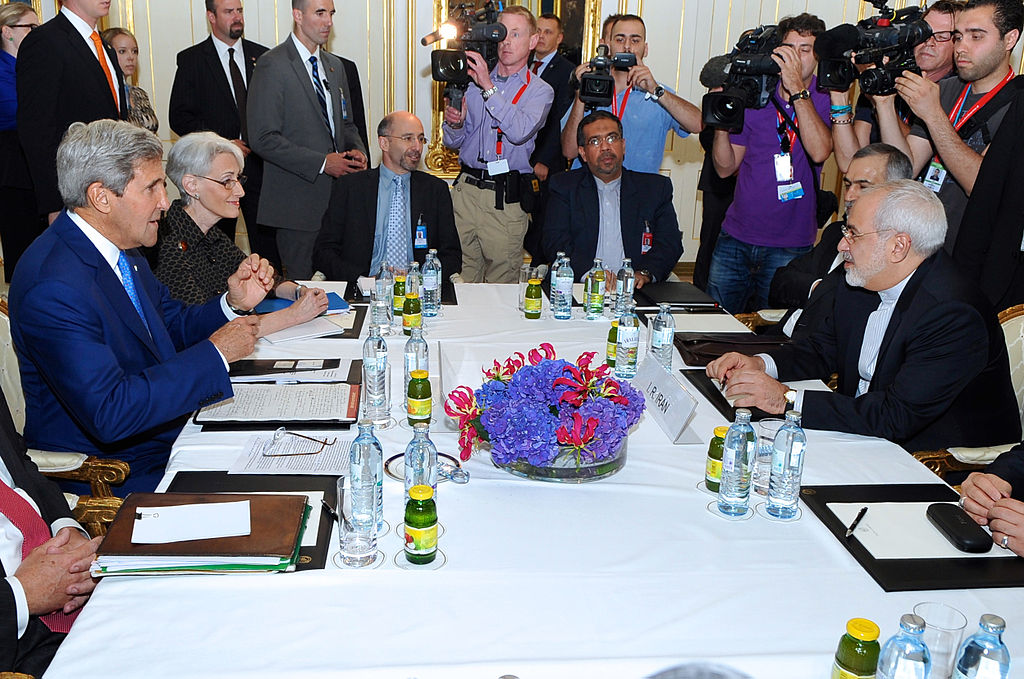Iranian nuclear program and its implications

By Saima Afzal
In international relations there are no permanent friends and enemies, only permanent are national interest. There has been concern over Iranian nuclear program since a decade which is considered peaceful by Iran and uranium enrichment by the global powers. The relations between the global powers and Iran deteriorated after the detention of US hostages in Tehran for more than 444 days in 1979. The US attempt to release the hostage was a failed venture by President Jimmy carter. The relations further worsen due to the anti-western and Israel statements by the during the Iranian president Ahmadinejad’s era. Thus, the Iranian can have influential role in international and regional politics after the uranium enrichment. However, US in general and Western Powers in particular kept watchful eye on Iranian nuclear program because they consider it threat to Israel state and its allies.
The Iranian Nuclear Program has been center of gravity since its inception among the international community. The rapid change in international relations has transferred this nuclear conflict from non-negotiable to matter of diplomatic resolution. Iran started its nuclear program as “Atom for Peace” with the full support of the West but it became a source of conflict since 1979 with the Iranian revolution. Although, the program was halted after the Islamic Revolution in Iran but when in 1980s in Iran-Iraq war started the international and regional powers cooperated with Iraq instead of Iran then it felt the need of string deterrent for enemies. In spite of huge resistance from the western powers especially of USA, the Iran continued its nuclear program and in response the state of Iran had to face political and economic sanctions which were imposed by the major powers and organizations. Anyhow, the Iranian nuclear conflict emerged when the Iranian president Ahmadinejad started development in the Arak heavy water plant in 2005; he also openly criticized the USA’s policies. In the result of this throughout his tenure more sanctions were imposed and domestic and economic conditions of the state worsen and he also faced criticism from the international powers.
When the reformist Hassan Rouhani came into the power he showed his good will for improving the relations with the West and used the tool of diplomacy to initiate the deal with P5+1. Just after the preliminary deal of P5+1 with Tehran the countries around the world are in line to have a business ties with the Iran. China is interested to buy more Iranian oil and to help to build a natural gas pipeline from Iran to Pakistan. Turkish president and few European states also want investment and expanded business ties. Although, the deal yet has to be finalized till June but it will definitely boost up the global economy and will bring regional stability.
There can be few negative and positive implications of Iran being a nuclear state. First, it can be emerged as regional hegemony and also can easily promote the Shia ideology in the other part of the Middle Eastern states which can lead towards the Sunni-Shia rift in their ideologically populated areas. Second, it undermines the spirit of NPT and the states who have abandon their nuclear program they can reassume it. Third, the non-state actors can get access to nuclear weapons which would increase violence in the region. Fourth, if we look into the previous statements of Iranian leaders there can be rift between Israel and Iran in near future. The positive aspect of nuclear Iran can be like this Iran can defend its regional States against any aggression. There can be stability not only in the region but also in the war torn country Afghanistan.
The Gulf States have reservations on Iran and P5+1 nuclear deal because this region has geostrategic importance due to abundant natural resources and Gulf States don’t want monopoly of a single state in the region. Iran will get a regional hegemony after acquiring nuclear technology and there are chances of sectarian conflict in the region and due to the Yemen crisis both great states of the region Saudi Arabia and Iran will try to ideologically defeat each other.
Regarding the Iranian nuclear issue, Pakistan’s position has always been that Iran’s rights must be respected; it should also fulfill its international legal obligations which would reassure other countries. Pakistan has been against any coercion or use of force which would destabilize the entire region, including the Gulf. In the current Yemen crisis Pakistan should play a neutral role and should not take any decision against the national integrity and national interest because both states Iran and Saudi Arabia are respectable to Pakistan and for the sake of one state we can’t compromise our relations with the other.




